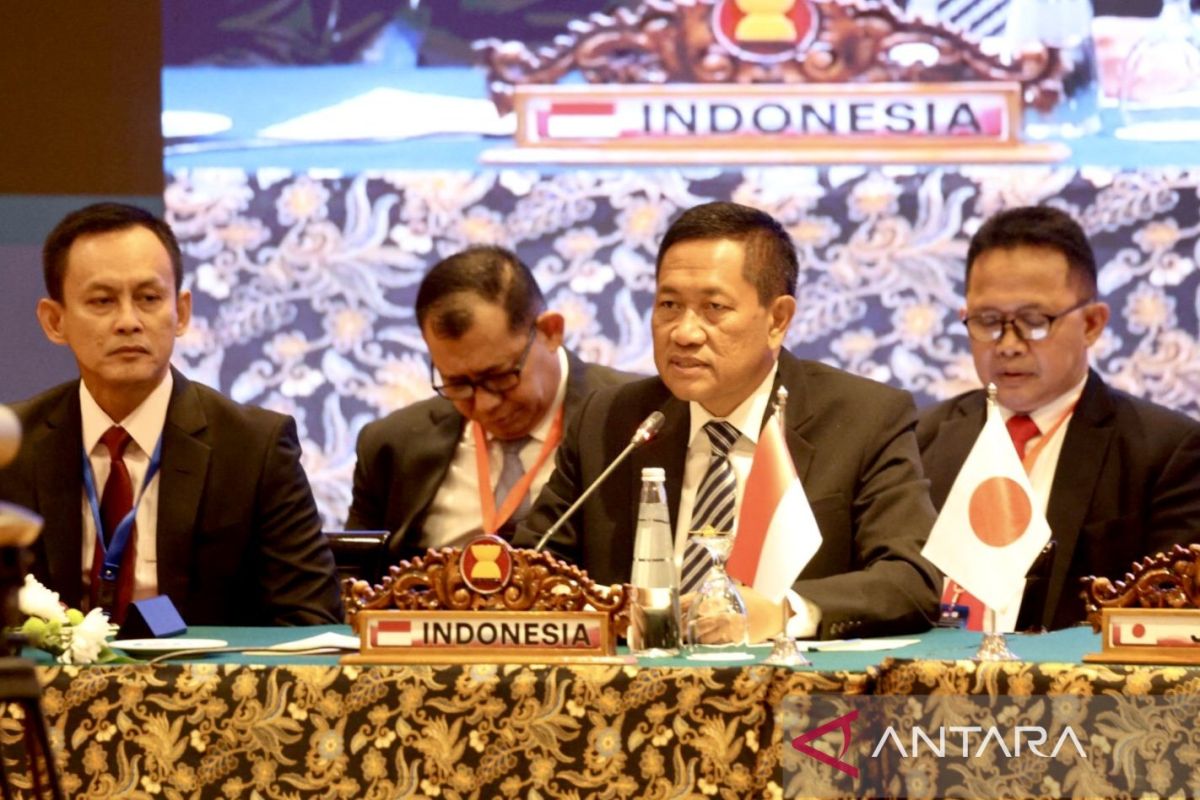ASEAN Maritime Cooperation Vital for Regional Security, Confirms Deputy Defense Minister
At an international conference focused on ASEAN maritime cooperation, Deputy Defense Minister Donny Ermawan Taufanto underscored the pivotal role of implementing the ASEAN Outlook on the Indo-Pacific (AOIP) principles in maintaining regional stability and security.
Taufanto highlighted the numerous threats to regional security and stability, including cross-border crimes like piracy and illegal fishing, which demand a coordinated response from nations guided by AOIP principles.
Prioritizing Dialogue and Economic Benefits
"With the spirit of AOIP, we must prioritize dialogue and cooperation over competition and rivalry," Taufanto stated. "Every maritime initiative must provide economic benefits while safeguarding the sustainability of the marine environment."
He further emphasized that the AOIP has been instrumental in guiding countries, particularly ASEAN members, towards avoiding the detrimental "zero-sum-game" approach to problem-solving.
The principles of AOIP, Taufanto added, champion openness and dialogue alongside cooperation and collaboration as crucial tools for overcoming a myriad of challenges and issues.
Non-Traditional Threats Demand Collaborative Effort
"Non-traditional security threats do not recognize national borders," he stressed, "therefore, collaboration in sharing intelligence and resources is a critical factor in effectively addressing these challenges."
Taufanto encouraged ASEAN countries to leverage existing forums such as the ASEAN Maritime Forum (AMF) and Expanded AMF (EAMF) to tackle pressing maritime issues within the region.
"Solid maritime cooperation between countries is a strategic move essential for maintaining stability and security in the region," he declared.
Conference Speaks to Collective Defense Cooperation
The conference, Taufanto emphasized, is not merely a formality but represents a significant step towards strengthening collective defense cooperation among ASEAN nations and their external partners in both the Asia-Pacific and Indian Ocean regions.
**Related news:**
Indonesia calls for support for ASEAN Outlook on Indo-Pacific
ASEAN Plus Three should remain anchor of regional growth: FM Marsudi –
– What are the pillars of regional cooperation emphasized by the ASEAN Outlook on the Indo-Pacific (AOIP)?
## Interview Transcript
**Host:** Welcome back to the show. Today we’re discussing the crucial topic of ASEAN Maritime Cooperation and its impact on regional security. Joining us is [Guest Name], an expert on Southeast Asian security and maritime affairs. [Guest Name], thanks for being here.
**Guest:** Thank you for having me.
**Host:** Deputy Defense Minister Donny Ermawan Taufanto recently stated that ASEAN maritime cooperation is vital for regional security. Can you elaborate on what makes this cooperation so essential, particularly in light of the threats we’re seeing in the region?
**Guest:** Absolutely. The Southeast Asian region faces a host of maritime challenges, from piracy and illegal fishing to territorial disputes and the potential for conflict escalation. As Deputy Minister Taufanto stressed, a coordinated response guided by the ASEAN Outlook on the Indo-Pacific (AOIP) principles is crucial.
**Host:** Could you shed some light on these AOIP principles and how they contribute to a more secure maritime environment?
**Guest:** The AOIP emphasizes inclusivity, openness, and dialog as pillars of regional cooperation. It promotes peaceful resolutions to disputes and emphasizes the importance of sustainable development and economic cooperation. [1] By embracing these principles, ASEAN nations can build trust and collaborate effectively to tackle shared maritime challenges.
**Guest:** We see examples of this cooperation already in progress, even if they are evolving. The Trilateral Cooperative Arrangements (TCA) between Malaysia, Indonesia and the Phillippines is one example. This agreement deals with specific security concerns and could serve as a starting point for broader collaboration.[[[[[1]]
**Host:** Deputy Minister Taufanto also highlighted the economic benefits of this cooperation. Can you elaborate on that aspect?
**Guest:** Definitely. A secure and stable maritime environment is crucial for trade and economic prosperity. Robust maritime cooperation ensures safe passage for ships, protects vital shipping lanes, and fosters economic development for all involved.
**Host:** It seems the Deputy Minister is optimistic about ASEAN’s future in maritime security. What are your thoughts on the challenges and opportunities that lie ahead?
**Guest:** While there are certainly challenges, the commitment to AOIP principles and the demonstrated willingness to collaborate, as shown by the TCA, are certainly positive signs. ASEAN nations must continue to strengthen their partnerships, build capacity, and work together to address emerging threats.
**Host:** Thank you for your insights, [Guest Name]. This has been a fascinating discussion on a critical topic.
**Guest:** My pleasure.

